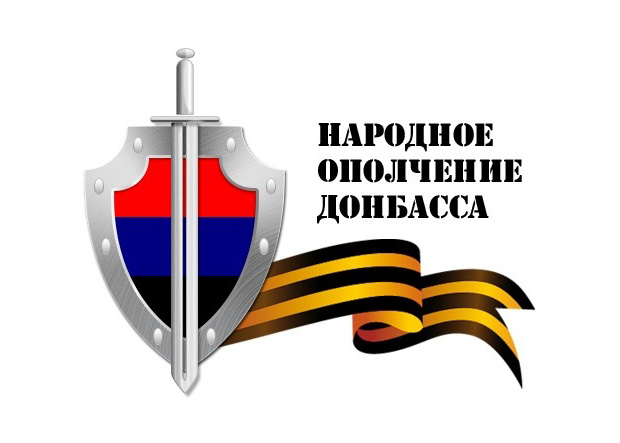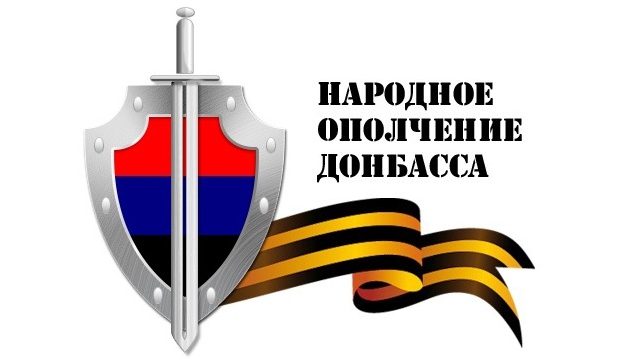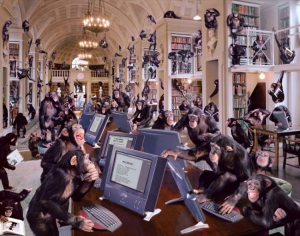Computer bots of Kremlin – a brand new army
*Bot – Short for robot, a computer program that runs automatically, sometimes imitating human function.
interview by Danil Turovskij (Translated by Karolis Judelevičius)
According to recent events, the real war is happening in cyberspace by exploiting information rather than on the ground. An executive of a company, employee of the government who wished to remain anonymous, disclosed the following information about bribing of bloggers, ordering DDoS attacks and shaping opinions of the general public.
How did You get into Cyber-warfare?
At the end of 2011, when the protests have started, we suggested trying to get into it. We started with “mucky pups” – bloggers and rare funded orders for journalists to process and render certain news to the public.
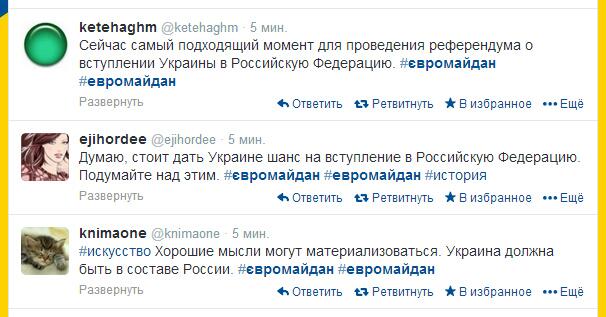
A typical example of bot activity on Twitter: any significant information is lost between entries created by bots following certain tags.
Usually we would get a bunch of “mucky pups” and at 9 am in the morning they would receive a brief data with the tasks for the day. Tasks would consist of what to look out for, how to manipulate information, what to emphasize during the course of the day. Their job was constant translation and focus of certain messages.
We used a simple technique finding these bloggers. We would go to “Jan-jak”, the popular chain of french coffee shops in Russia, and we would look for the ones short of cash or the ones with unclear views about opposition.
We would choose one and offer fifteen thousand to write about for example a corrupt member of Bibirevo municipality.
They thought they were doing the right thing and also making money in the process. After the second or the third time we would ask them to write something about Aleksei Navalny. If they didn’t comply you could threaten to let everyone know they took money from us
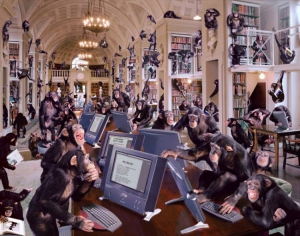
Obviously we always guaranteed complete anonymity. But after the scandal of hacking into Potupchik’s mailbox, who also had “cyber” employees, everyone got really spooked. (in 2012 after the hacking of “Nashi” Youth movement’s spokesman Potupchik’s mailbox, the correspondence with funded bloggers became public – D.T.).
We were very cautious, some people even created secret email addresses, they imagined they were special agents, they completely fell for it. When we would meet to exchange cash, they would carefully explore the surroundings, checking if they weren’t followed, like during some drug deal.
Who supplied the messages for “mucky pups” to spread?
It would come from above, from the administration of Putin. We are, what you can call, a branch of informational support, consultants for public relations, a department of propaganda. It was already happening when i joined. The 85 rubles for an online comment was already in the past. To be honest i always considered it to be pointless so Youth movements took care of that.
There were loads of cash to be shared around. So they kept inserting pointless comments on “LiveJournal” (most popular blog site in Russia). Tags and hash-tags were being used even before the jubilee of Vladimir Putin in October of 2012. Actual people worked the internet then, only later replaced by bots. Nowadays, when a message from opposition rises to the top, we just drown it with junk.
After the lowest ranking writer enters a message on Twitter, it is then passed on to a trained employee, who then places that same tagged message into a program, for further distribution. Around 85% percent of Twitter messages originate this way. The rest 15% are done by relatively known people to gain reputation. This is the bottom level of cyber-warfare.
How did you create tasks for “mucky pups”?
I’m very surprised when people take posts by “mucky pups” seriously and even start discussing it because they are so easy to spot.
There is always a particular structure in all ordered texts. Because of lack of trust for bloggers and journalists we would issue five essential points for text making. For example: you will most definitely find “historic heritage” and “banderivets”, etc. mentioned in a text regarding Ukraine.
Also there is loads of information on Aleksei Navalny, but suddenly everyone remembered that he is a nationalist, right? So the system of “mucky pups” was deemed ineffective. A new presidential administration also had a lot to do with the change of things.
Before the new administration our budget was unlimited with main targets to buy as many journalists and bloggers as possible with wages of up to 90000 rubles per month. Only so called top level bloggers received higher payments.
Are they like Ilya Varlamov?
Someone like him, yes. The hacking of Potupchik’s mailbox revealed payments of up to 300000 rubles had existed. Even though he was in the “circle” i doubt he was paid that much.
So the numbers of “mucky pups” are in decline?
Yes, mainly because of budget cuts and change in politics. In the beginning of 2013 we submitted reports suggesting to start creating counter-information. Everyone was in favor of this idea. Actually that was the start of “kontr.tv”, but budget cuts terminated its activity. It was dirty but very effective operation.
2013 brought a wave of tabloid closures. A liberal approach was gone. The new way of thinking involved removing the threat altogether rather than toying with it.
Are there any threats left?
I don’t think so. “Vedomosti” is being intimidated by putting pressure on it. Currently it is not a good time to be a journalist in Russia. Vladimir Vladimirovich Putin has finally clued up to the fact that you can set up instrumental media in Moscow as easily as a European resort in Sochi.
All the recent news are a part of the politics to create a nice and acceptable media. “Russia Today” is one of the examples. Soon it will be actively used to portray elections to Moscow City Duma in the required manner.
What did you do next?
In the end of summer of 2012 I have decided to do something new and started writing various types of texts for pro-Kremlin publications like “politonline.ru” and “Vzgliad”. After one publication in “Zavtra” I was offered a job in a company of blog production with even its own mini TV channel. Thats when got into some serious propaganda creating our own plots and stories. I invited people to write favorably about Putin’s politics – Aleksandr Dugin and Sergey Kurginyan to mention a few.
That was when I became completely immersed in a clandestine world of cyber-warfare. I became a manager, planning and organizing rather than a just a publisher.
Do You still work there?
Sort of yes. Its a horizontal type of structure, with many branches. There are 8 cyber-warfare departments just in Moscow. The whole propaganda scheme is handled by a General Manager and three Assistant Managers. Every department according to their assignment works with one of the assistant managers.
I’m not jealous of the department looking after the patriotic Prokhanov’s Izborsk Club (neo fascist political group, founded in 2012 – D.T.). All they ever talk about is Stalin, vodka, empire, etc. There are quite a few businessmen around them too, letting them use their private planes to go to assemblies for example. But the old farts haven’t got a clue about internet.
I had a chat with Aleksandr Prokhanov once, and can you imagine – he asked me to make a picture move! I did not know what was he talking about. And he said that there was a moving picture on Misha Leontiev’s website and he wanted to have one on his website too.
Can you give an example of you “working” the news?
Let’s say the last court session of Aleksei Navalny (7th of March, 2014 – D.T.) We received instructions to shed a negative light on the planned rally in front of the courthouse and to positively portray the arrest of Aleksei Navalny.
We would monitor the participants in the rally, the news and pictures from it.
We would find the negative angles and would start flooding our friendly media channels with stuff like: “Look, sodomites are parading” or “Nadezhda Tolokonnikova carrying a chicken”, and enough of these creating a required informational noise.
How many of these friendly media channels exist?
Probably around ten, another twenty or thirty with a little encouragement. With the unlimited budget we had everyone in our pocket.
There is a new generation of journalists calling themselves “independent”, who were at some point all funded by Kremlin. I could easily name all of them.
So You mainly looked for final year students at Faculty of Journalism?
I spent most of my spare time over there, namely “Eat & Talk”. (cafe near Faculty of Journalism, Lomonosov Moscow State University – D.T.) I have even found someone from “Rolling Stone” magazine there. People are greedy and Moscow is a very expensive city. I have even paid journalists to write something neutral.
For example, for a “Seliger” description everyone was being bought, we even managed to shove our publications to the media of the opposition. Their excuse was that it was like gang wars to them – taking money from one enemy to harm another.
They received sums of up to 120000 rubles. I personally gave 70000 to a journalist from the “Kommersant”.
The group of paid journalists is dispersed now, they are not prepared to publish to order. Everyone knows about it now, so they write for opposition.
Of course it is very amusing when they refer to sources from AP (Putin’s administration), because 99% of these sources are us.
Once a relatively well known writer from “Krasnyj Oktyabr” (Red October) told me about a confidential piece of information I had created myself. An older man tells me about information from his supposed secret sources and it was all made-up by me.
Didn’t he know what was your job?
My job is not obvious, although people can sense that.
Do You have an office?
I don’t have a schedule or a meeting planner, but i have to sign for our budget. Among other things used to rent an office. I don’t know where the money comes from, we just sign a slip and get it in cash.
We are often blamed that we do nothing at all, that we just get paid for our loyalty. They call us “Putin’s parasites”. But after you spend three nights in a row at the office you start to wonder, you know?
We have eight team members of whom two are from the monitoring service. We don’t have positions or hierarchy, we are all ideologists and share everything equally. While other department is managed with military order by a well known person who doesn’t actually do anything, except maybe his role of middleman between his subordinates and the money.
Do you still write?
Very rarely. We usually have a morning meeting to discuss our plans for the day, decide who’s covering what, who has people where. There is a list of safe journalists, the ones you can meet or have a drink with.
Of course there is a blacklist for journalists too with Ilya Barabanov topping the list. We don’t work with them, as they would definitely rat it out.
Who else is on the list?
Oleg Kashin is not on it. I won’t mention any names, it would not be correct.
Is “Sputnik and pogrom” on the “good media” list?
I don’t know. Can’t talk about it.. It’s going too well for them. I did use their texts about Crimean few times. They were so well written I even thought of hiring them. Of course they were to expensive, even for me.
We can take texts by Egor Prosvirnin, taking couple paragraphs out about Putin being bad, and will have an excellent material.
You mentioned eight departments in total, do you have general meetings?
Of course we communicate and have general meetings, also once in a while we are gathered for editorial boards by “people from above”.
Are your people responsible for DDos attacks?
They are usually hired ex-members of youth movements, who during the internet investment boom managed to open their own tech-studios. They gather followers and distribute videos via YouTube.
Actually, in 2012 their services of post sharing where bought by Aleksei Navalny. Obviously he was cheated then – his people made a deal with us and paid for “shares” and “likes” and it never really happened.
And anyway it is very easy to make 700 clean re-tweets. The boys have created fishing apps, stuff like “find out how old you really are”, “i read an article..”, “be the first to see..”, etc. for finding careless users so their profiles can be later used for retweet or repost. And not everyone checks their history of posting or tweeting.
How many actual followers Tina Kandelaki or Vladimir Solovyov?
Once someone starts expressing favourable views towards Putin, they are “boosted-up”. That’s their bonus for the “correct” views. Burmatov and other similar pro-Putin bloggers have only about 20% of actual followers.
I did tell Solovyov that not all of his followers are real, but he is adamant they are. Of course he is the most popular between bloggers, has at least thirty thousand followers, surely. Mainly because – if you follow Dmitry Medvedev, you get an automatic suggestion to follow Solovyov as well.
So Medvedev was “boosted” as well?
Yes, there was an interesting story regarding that. Even though it was clear from the start that Medvedev will be very popular, a person responsible turned out more than a million followers. In the process he has done the same for himself as well, so for a while we called him “the king of twitter”.
Using his own team and similar schemes Navalny also paid for every post, although they were less obvious and more carefully executed. During the election for the mayor Navalny paid for his interview for rap.ru and his avatar in MDK (popular video game) cost him 800 000 rubles.
Lets get back to the DDoS attacks. So it is entirely possible for you to receive an order to attack “Echo of Moscow” for example?
Sure. Although not “Echo of Moscow”. We have orders to not touch it. Usually it is the LiveJournal. According to the management blogs are the greatest threat.
Do you already have a solution for mirror-blogs of Navalny?
He is yesterdays news. The threat of Navalny has nearly disappeared now. Blogs are not tied down to a particular person, hundreds of them can express the same views and its impossible to shut them down. So the whole platform has to be attacked, exactly like when Navalny was arrested.
It is very exciting to watch Twitter when something important is happening. The five main pro-putin bloggers start fighting who is going to get the most re-tweets.
Blog work is well paid and departments boost their own bloggers as much as possible to make the end of the month report look better.
How much of a cyber-warfare soldier you are?
In the beginning with ten of my “mucky pups” I have felt highly valuable. But in reality propaganda has to be released in huge loads. Single post is not noticeable, it has to be constant, it has to be everywhere and all the time and in large quantities. Only then it will have substantial effect on people.
One of the biggest oppositionists I’ve ever known from Faculty of journalism, recently started talking to me about Western aggression. Another one – true supporter of Navalny in the past, opened a discussion about how bad is that Navalny is a nationalist.
I can really see how propaganda affects people, how you can “put” ideas in their heads. We let them think they are conscious and thinking. We copied this tactics from a real professional Maxim Kononenko, who always offers to think. He would say: “It is all very well my friends, but lets try and think together”. He makes them feel like they are equal.
Opposition has genuine opportunities to win over the system, but it has to be instant. Mainly because every move of the government has to be approved by at least five signatures and three meetings.
I sometimes think that government offices are like clubs for people who like conferences. If there is an event requiring a fast response, they would agree that there is a need for action, but still decide to have a meeting about it. And if i say, ok, so i’m coming over now, the answer would be: “Well, maybe tomorrow is a better time, our superiors are gone for the day”. And so that job becomes meaningless.
I assess the value of my work whether it reached Putin or not and if has – it’s a successful one.
There is this guy, Vova Tabak, he used to create calendars for Faculty of Journalism. Some say that video “Putin can, Putin can” he has created made Putin cry and he was straight away given few million dollars. Also he enjoyed our “Polite people”
Are You not that busy anymore?
I’ve spent a month and a half in Kyiv doing a real good job. We have taken very good photos, thanks to the fighters of the “Right Sector” for swastikas too. Usually we have to bring strange individuals with silly posters and slogans, but here it was all sorted for us. Just the monument of Lenin fell down, only I can’t say who helped it.
No-one knows what is going to happen next. It looks like work is going to continue to decrease. Few are leaving for Public Relations, few for Public Chambers, one for mass media. We are not content to get paid for doing nothing, we do enjoy our work.
Until the middle of 2013 we were on the losing side in cyber-warfare, but we learned the more effective ways to work. We had to because professionals would not work for us out of shame. And then in 2013 we won the informational war against opposition , the only glitch being the mayoral election.
We don’t need to talk about luck in 2014. If Putin is going to continue the way he is at the moment, we all going to be out of job altogether.
Source: hvylya.org
